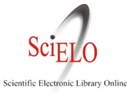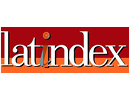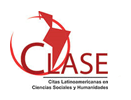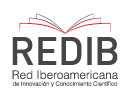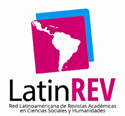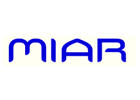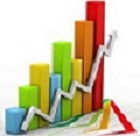Without the need for anyone (except for the algorithm)
DOI:
https://doi.org/10.21142/DES-1502-2023-0020Keywords:
algorithm, internet governance, daily life, digitalization, cyberneticsAbstract
Given the current conditions of complexity, we consider it fundamental to question how to understand what is being implemented under the idea of the «new normal» in the formulation of daily life which implies its establishment. We recognize that this daily life has been expropriated from its actors through the most invasive and homogenizing technological operation that has operated globally until today, condensed in the conceptual character known as the «algorithm». The thesis of this essay argues that daily life in the so-called new normal is globally mediated by algorithm management and, in its effects, constitutes the establishment of a totalitarian and altericidal project of planetary character. In this sense, the purpose of this writing was to reflect on how this altericidal project underlies the establishment of a life channeled by «the algorithm» and its pretension of rationality. It is concluded that the current algorithmic governance and its digitalization consolidate the deprivation of human agency, which sets the urgency of looking for effective ways to intervene in this regard.
Downloads
References
Agamben, G. (2007). Lo abierto. El hombre y el animal. Pre-textos.
Berardi, F. (2017). Fenomenología del fin. Sensibilidad y mutación conectiva. Caja Negra.
Braidotti, R. (2015). Lo posthumano. Gedisa.
Celis, C. (2020) «Aceleración, algoritmos, poder». En Andrés Maximiliano (ed), Tecnología, política y algoritmos en América Latina (pp. 157-172). Cenaltes Ediciones.
Chul-Han, B. (2014). Psicopolítica. Editorial Herder.
Despret, V. (2021). A la salud de los muertos. Cactus.
Fernández-Galiano, L. (2019). Los Ángeles 1968-1989. Disney, Bradbury, Fuller. [Conferencia]. [Video de YouTube]. https://youtu.be/q5q6CpOqPf4
García, J. y Sánchez, L. (2022). Aplicación de dispositivos digitales para vigilar, enfrentar y controlar la pandemia de COVID-19 en 2020. Oxímora. Revista Internacional de Ética y Política, 20, 117-140. https://revistes.ub.edu/index.php/oximora/article/view/37072/36618
Guillén, M. (2022). El Nuevo Mundo 2030: demografía y economía. [Conferencia]. ]. [Video de YouTube]. Fundación Juan March. https://www.youtube.com/watch?v=P5jYzjjn5pI
Heller, A. (1975). Sociología de la vida cotidiana. Península.
Land, N. (2021). Teleoplexia. Ensayos sobre aceleracionismo y horror. Holobionte.
Lapoujade D.(2022). La alteración de los mundos. Cactus-Ocursus.
Rolnik, S. (2019). Esferas de la insurección. Tinta Limón.
Sacchi, E. (S. f.). Vida y servidumbre maquínica en las sociedades de control. https://www.academia.edu/25660951/Vida_y_servidumbre_maqu%C3%ADnica_en_las_sociedades_de_control
Sadin, É. (2018a). La silicolonización del mundo. La irresistible expansión del liberalismo digital. Caja Negra.
Sadin, É. (2018b). La humanidad aumentada: la administración digital del mundo. Caja Negra.
Sadin, É. (2020). La inteligencia artificial o el desafío del siglo. Anatomía de un antihumanismo radical. Caja Negra.
Sadin, É. (2022). El individuo tirano. El fin del mundo común. Caja Negra.
Savona, M. (2020). ¿La «nueva normalidad» como «nueva esencialidad»? COVID-19, transformaciones digitales y estructuras laborales. Revista de la CEPAL, 132, 209-224. https://repositorio.cepal.org/bitstream/handle/11362/46831/RVE132_Savona.pdf?sequence=1&isAllowed=y
Shirrmacher, F. (2015). Las trampas del juego capitalista. Ariel.
Sotolongo, P. y Delgado, C. (2006). Saber social, complejidad y vida cotidiana. En La revolución contemporánea del saber social y la complejidad social. Hacia unas ciencias sociales de nuevo tipo. CLACSO.
Tiqqun. (2015). La hipótesis cibernética. Acuarela & Machado.
Downloads
Published
Issue
Section
License

Esta obra está bajo una licencia http://creativecommons.org/licenses/by-nc-sa/4.0/




